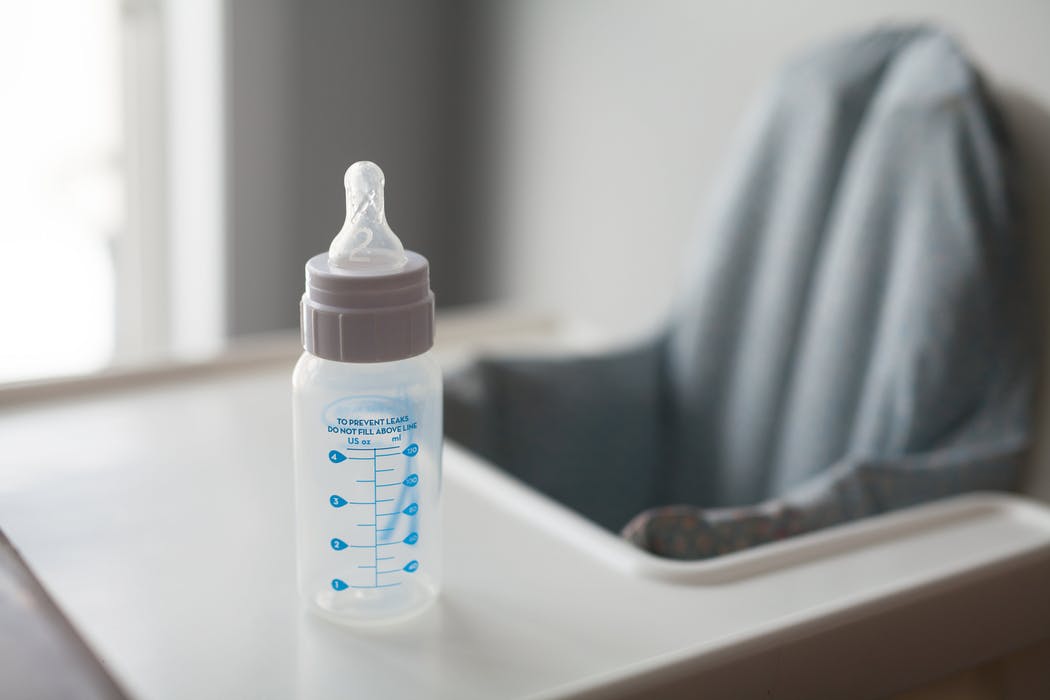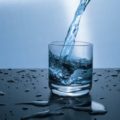
Feeding a baby with breast milk exclusively is most often unrealistic for many mothers, hence the need for baby formula. It is very important to pay careful attention to safe preparation of your baby’s milk, because a formula-fed baby does not have the immune factors advantage that comes with breastfeeding. Another important factor or consideration in the preparation of baby formula is the type and quality of water used in mixing the formula.
According to the American Academy of Pediatrics, water should be boiled first before being given to babies, whether for drinking or mixing with formula. Boiling water kills germs and removes impurities present in municipal water. Pediatricians recommend that water should be boiled during the first three or four months before being mixed with baby formula. There is no existing evidence that proves that bottled water is safer than municipal water, it should also be boiled first before mixing it with baby formula. Distilled water is safe for babies and it is among the types of water recommended by pediatricians after the 6 month period of exclusive breastfeeding. However, it should be noted that drinking or using distilled water to prepare baby formula is not without disadvantages which include;
Mineral Deficiencies
Drinking distilled water could rob your baby’s body of its natural source for many minerals essential to good health. This results in mineral loss in the ‘baby’s body which increases the risk for attention deficit disorder, hormone imbalance, weak bones, and cardiovascular conditions.
Tooth Decay
Because distilled water does not contain any fluoride, dentists are beginning to see an increased number of cavities in young children who drink bottled water. However, the American Dental Association does NOT recommend the use of water that contains high levels of fluoride when mixing baby formulas. Too much fluoride puts babies at risk for enamel fluorosis, a condition that develops while teeth are forming.
Electrolyte Imbalance
The World Health Organization in a study titled Health Risks of Dimineralized Water reported that because distilled water is stripped of all minerals it can cause electrolyte imbalances in the body of your baby. Your child’s body will leach electrolytes from tissues in order to add them to the mineral-free water he or she is drinking. This is necessary so that the body can function normally and eliminate waste. If the water redistribution process in your child’s body is not functioning optimally, he or she may experience fatigue, weakness, headache, muscle cramps, and an abnormal heart rate.
You should talk to your pediatrician before switching your baby from purified water to distilled or using distilled water to mix infant formula.
Distilled Water For Baby Constipation
Constipation is a condition of the bowels in which the feces are dry and hardened and evacuation is difficult and infrequent. If you’re concerned that your baby may be constipated, look out for these signs: crying and discomfort, irritability or pain before doing a poo, dry, hard, pellet-like poo that she has trouble passing, fewer than three bowel movements a week, Foul-smelling wind and poo, loss of appetite and hard belly. Distilled water is not recommended for constipation in babies, most pediatricians recommend boiled tap water or purified water. One of the most common minerals found in purified water is magnesium which in the event of constipation can act as an osmotic laxative by relaxing your child’s bowels and pulling water into his or her intestines. Mineral water containing magnesium helps to soften and bulk up stool making it easier to pass. In addition, a deficiency of Potassium another common mineral in purified water may cause problems like bloating and constipation because it can slow the movement of food through the digestive tract. It is important to also note that excessive calcium in the body can also lead to constipation.
When preparing your baby’s formula, it is important to ensure their safety and well-being. One option is using Bubs organic formula, which is known for its high-quality ingredients. To address concerns about using distilled water for baby formula, it is generally considered safe as long as it meets the appropriate quality standards.
Don’t forget to follow these important guidelines:
- Consult with a healthcare professional: It’s always a good idea to consult with your pediatrician or a healthcare professional for personalized advice on feeding your baby and using distilled water.
- Follow the formula preparation instructions: Follow the specific instructions provided by the manufacturer of the baby formula regarding water type and ratio for mixing. They may recommend using distilled water or provide alternative options.
- Ensure hygiene and cleanliness: When preparing baby formula, maintain strict hygiene practices. Clean and sterilize all equipment, including bottles, nipples, and utensils, to reduce the risk of contamination.
- Assess the mineral content: Distilled water lacks minerals, which are present in other types of water. Minerals are essential for your baby’s overall development. In some cases, healthcare professionals may recommend supplementing your baby’s diet with additional minerals or using a combination of distilled and mineral-rich water for formula preparation.
Remember, it’s crucial to consult with a healthcare professional to ensure you are making the best decisions for your baby’s specific needs.





1 Comment